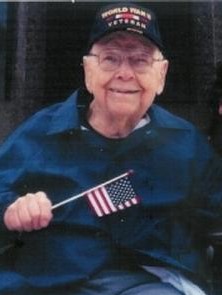THOMAS-AUGUST
AUGUST LEO THOMAS

QM2

D-DAY NORMANDY STORY
Source: Excerpts from 1994 interview by The Eisenhower Center for American Studies University of New Orleans, published on Military.com:
I was born May 5, 1924, in Saint Martinville, Louisiana. I volunteered for the Navy V-5 Aviation Cadet Program and was called in March 1943. I washed out of the program in September 1943 and was sent to Quartermaster’s School at Great Lakes. After finishing school I received orders to report to LST-507. I boarded LST-507 on March 12, 1944 and the following day we shoved off overseas. LST-507 piggybacked LCT-663 to England and when we got to Plymouth, England, LCT-663 was launched and I transferred to the crew of LCT-663 at that time. On April 28th we were in the ill-fated Exercise Tiger, a D-Day rehearsal when LST-507 was sunk and we were ordered back into port.
On June 4th, we received orders to get underway. We left Plymouth, formed convoys and headed out. The weather was real bad, the seas were rough and there were many seasick soldiers aboard. Later orders came to head back to port. This was a big letdown. On D-Day, I was aboard LCT-663 at 0001 hours. We were somewhere in the English Channel in convoy with other LCTs heading for France. The weather was heavy, wet and windy. The channel was very rough, not ideal conditions for flat-bottomed landing craft. My assignment was Quartermaster on duty on the conning tower, next to the skipper. I was charged with relaying orders from the skipper to the crew at their battle stations. We were wearing impregnated clothes over our dungarees. These clothes covered all of our bodies from the neck down and they were hot as hell, itchy, and the odor was unbearable. Our gas masks were at hand and we wore the standard helmets and boots.
Our initial landing was on Utah Beach shortly after H-hour. I don’t believe anyone aboard slept that night. Our passengers were combat engineers and infantrymen, vehicles, trailers, explosives and other gear that belonged to these soldiers. All night long airplanes and gliders passed overhead and all around you could see ships of all sizes and shapes. When day broke it was a sight you would have to behold to believe, fighter planes, cargo planes, gliders and bombers. There were ships as far as the eyes could see. Then all hell broke loose as the ships opened up and shelled the shoreline. The concussions of the guns seemed to want to pull your clothes off. We headed to the beach in columns. LCT-777 was ahead of us and there was a terrific explosion and LCT-777 seemed to break in half. We learned later she had hit a mine. It was heartbreaking not to be able to stop and render assistance to the men who were so desperately in need of help, and some of these men were our friends.
As we got closer to the beach, we could see the sand being kicked up by exploding shells. An ensign who was standing next to me said, “Thomas, it looks like they are playing for keeps.” I said, “Yes, sir, they are.” A few minutes later the ensign was killed and I was wounded by an exploding shell. I grabbed hold of the ensign and laid him on the deck and called for a medic. Then I helped lower him to a catwalk near the wheelhouse. We continued to the beach for our landing. We beached and dropped our ramp, and the combat engineers and infantrymen and their equipment were discharged on French soil. The sound of shells exploding, the machine guns firing, the airplanes overhead, and all the other sounds of war were deafening. The skipper and I were taken to a hospital ship anchored offshore. We were checked, given booster shots and returned to LCT-663. We continued making shuttles between the ship and the beach.
To me, on June 6th, 1944, time meant nothing, simply because things were moving too fast to even think of time or of food or of anything else. As the day passed into history nobody on the beaches of Normandy was sleeping and wouldn’t be for some time. The only people who can truly appreciate the significance of D-Day at Normandy are those people who participated in this great invasion. It was a terrible price to pay, but one we had to pay to ensure that our freedom would be secure. Relative to awards or citations, I was awarded the Purple Heart for wounds received on D-Day.
The way I felt when I volunteered is exactly the way I feel today. And that is – my country was in desperate need of help. I offered my help. I did my best, came home not expecting or wanting help from the country that gave me the privilege of volunteering my services in time of need. Awards, citations and medals mean nothing to me. But, I am enjoying freedom and keeping freedom in this great country of ours means everything to me. Without freedom, we are nothing.
NOTE: August Leo Thomas died on April 14, 2013, and is buried at Saint Michaels Cemetery in Saint Martin Parish, Louisiana, where his memorial marker carries the inscription: QM2 – US NAVY – WORLD WAR II – PURPLE HEART.
Submitted by CDR Roy A. Mosteller, USNR (Ret)

